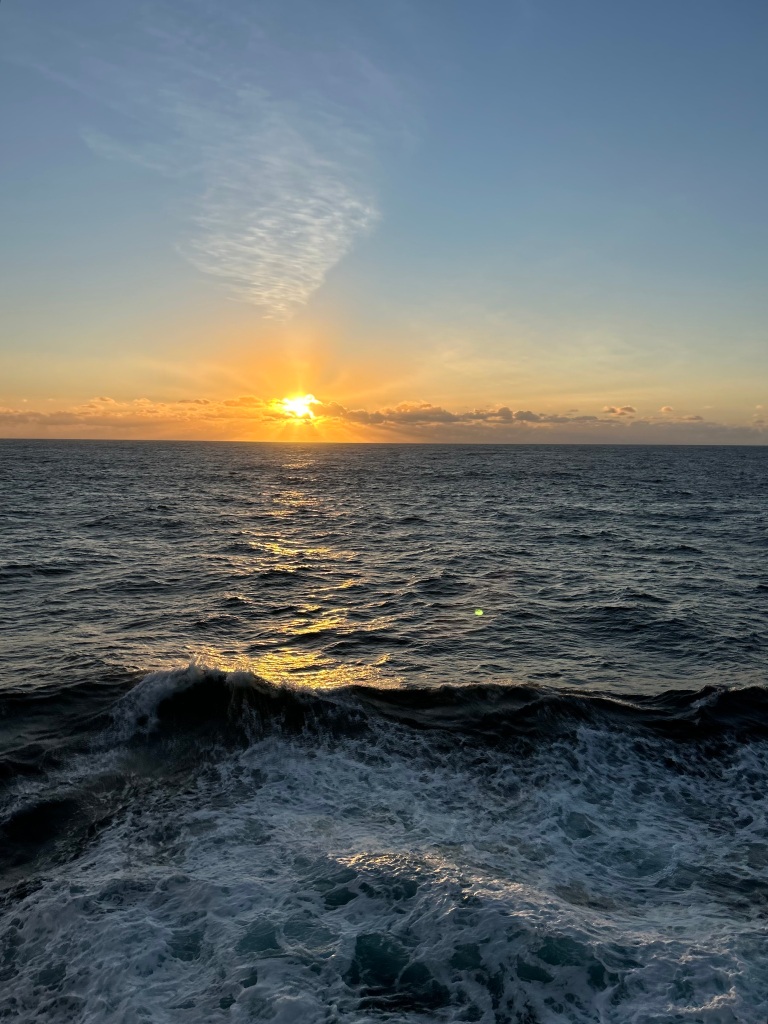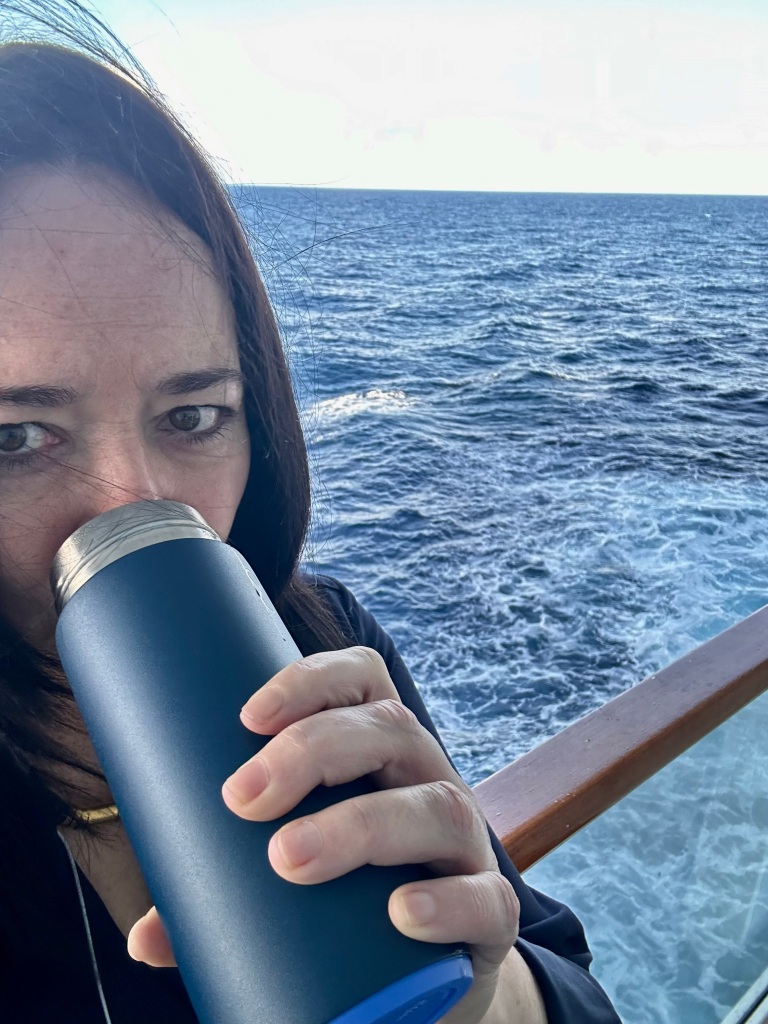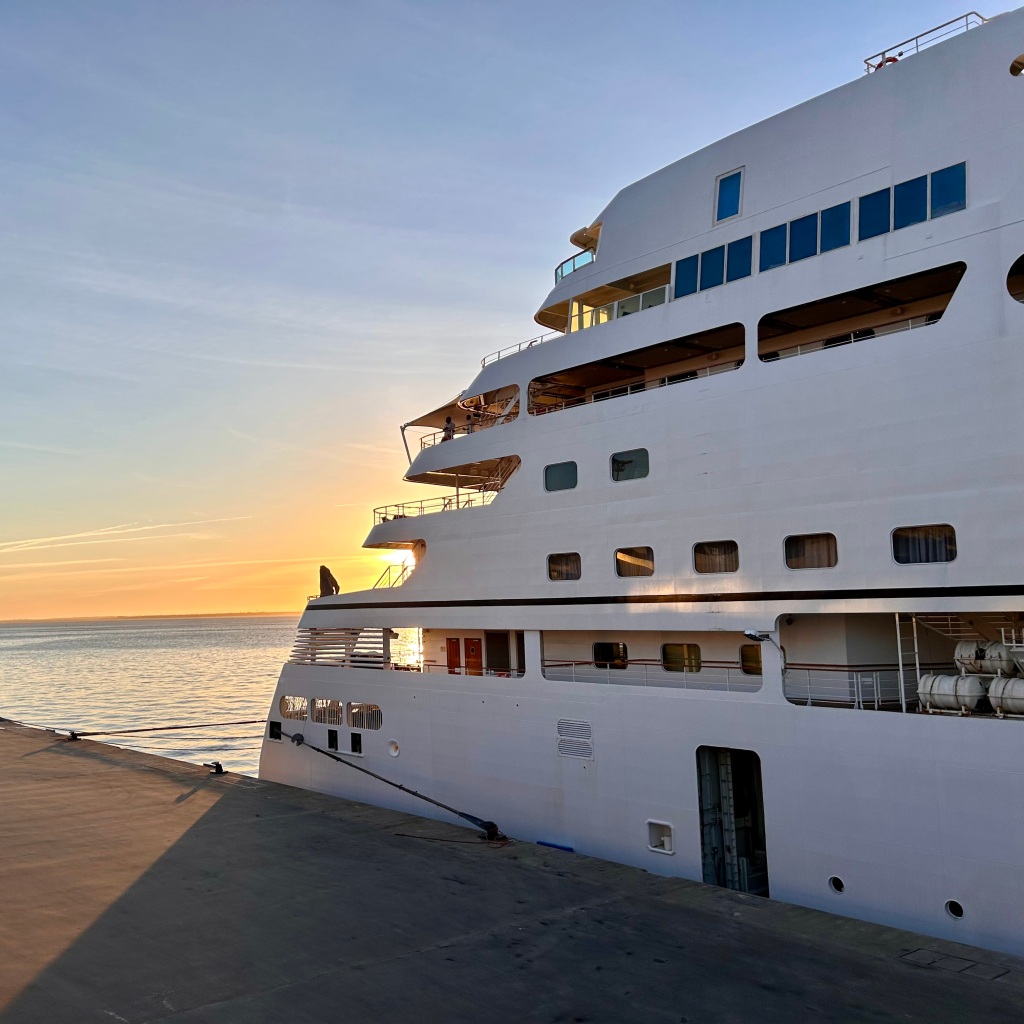Picture this: over 300 luxury travel experts and suppliers gather for an exclusive Summit at Sea. We embarked from Dover, gliding toward Spain and Portugal, with Normandy as our first stop. But nature had different plans. A storm was brewing across Europe, and by the time we left Bilbao, the seas turned into a roller coaster—three days of nothing but turbulent waters, tossing us from every direction.

It was so intense that motion sickness bags lined the ship’s corridors. And, of course, there was no land in sight for 48 hours. By the time we docked in Porto, my legs still felt the sway of the ocean, like I was stuck on an invisible boat. Three days after the cruise, I could still feel those waves!
Here’s the kicker: I’m prone to seasickness. Normally, I would’ve been the first to grab anti-nausea meds, and even then, I’d probably still struggle to keep up with meetings or a formal dinner. But this time was different. I didn’t take any medication and, surprisingly, I never felt sick. I wondered why. And then it clicked—I had started practicing alternate nostril breathing about a year ago.

Alternate nostril breathing, or Nadi Shodhana, is a simple yet powerful technique that involves inhaling through one nostril, closing it, and exhaling through the other. Over time, this practice helps balance the nervous system and reduce stress—two key factors that play into motion sickness.
Here’s how it worked for me:
- Stress Relief: Nadi Shodhana activates the parasympathetic nervous system, the body’s calming mechanism. Lower stress levels mean less anxiety, which can worsen seasickness(SOMA Breath)(Reframe App).
- Respiratory Support: By practicing this regularly, my lung capacity and breathing efficiency improved. It allowed me to maintain steady breaths, avoiding the panic-breathing that often accompanies nausea(Cleveland Clinic).
- Nervous System Balance: This breathing technique helps balance the autonomic nervous system, the part of our body responsible for managing digestion and stress. Keeping this system in check prevented nausea from escalating(Reframe App).
The results were clear: what could have been a miserable three days at sea became manageable. I didn’t need my usual medication, just this simple breathing technique, and a sense of calm.

So, if you’re someone like me, who dreads the idea of motion sickness, try adding alternate nostril breathing to your routine. It won’t work miracles for everyone, but it might just turn a stormy sea into a peaceful journey. Many of my colleagues weren’t so lucky, but I came out feeling like I’d discovered a secret.

Stefanie is a luxury travel advisor with a passion for crafting bespoke itineraries tailored to her clients’ unique desires. With extensive travel experience and a keen eye for detail, she ensures each journey is not just a trip but a memorable adventure. Discover more about her services and expertise today!

